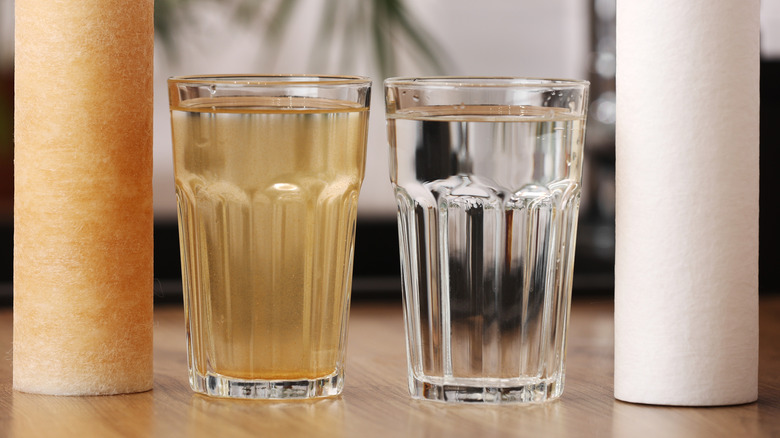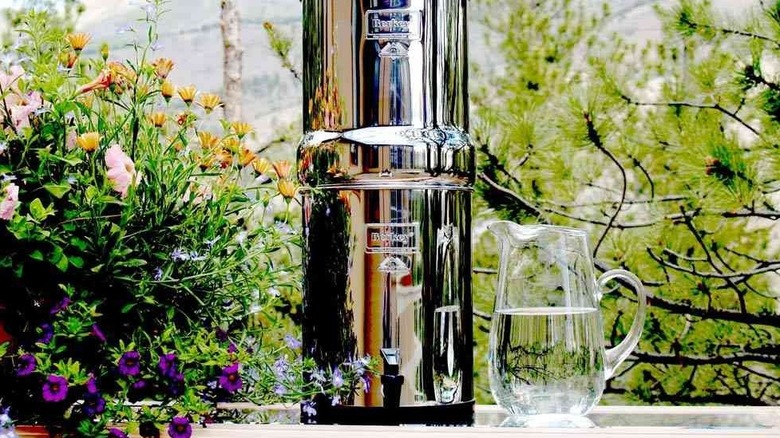Things You Should Know About Gravity Water Filters Before Buying One
For something so simple, drinking water sure can get complicated, at least when it's time to pick a filter. There's an almost dizzying array of water filters available to buy, from compact pitcher water filters to under-sink water filters. Many of the most common personal water filters are gravity-fed, meaning they use gravity to pull the water through a filter.
Gravity filters are straightforward: You just pour the water into the upper chamber and wait for it to drip through the filter into the lower chamber, where you can access it through a spigot. They require no pumps, power, or plumbing hookups, so they're popular for camping and backpacking. But many people also love using them at home — the Berkey brand is a common favorite.
Though gravity filters have been around for a long time, the filter technology has evolved over the years. Today, they're typically made of materials like activated carbon, ceramic, and resin. But gravity water filters have some stiff competition these days, including ultraviolet filters and reverse osmosis filters. Before you choose a gravity filter, here's what to know.
Gravity filters pros and cons
Companies that make gravity filters include Doulton, Boroux, Lifestraw, Waterdrop, and Glacier Fresh, among others. But the most classic gravity filter has to be the Berkey. These systems have many pros. They're easy to use, requiring no installation and little maintenance long-term aside from cleaning or changing the filters. They come in large sizes, allowing you to filter gallons of water at a time for a more affordable cost than a whole-home filter.
However, Berkey in particular comes with a high upfront cost, even higher than some reverse osmosis systems, despite not being certified by the National Sanitation Foundation (NSF). Additionally, you have to refill gravity filters manually and then wait for the water to drip through the filter, which can take quite some time. Countertop versions of these systems are convenient for filtering a sizable amount of water at once, but they take up a lot of space compared to pitchers or under-sink filters.
It's also important to consider a specific water filter's capabilities, whether it's a gravity filter or another type. Learn which contaminants are in your tap water and look up a filter that has been tested to remove those contaminants. Gravity filters typically filter chlorine, fluorine, pesticides, herbicides, and bacteria; some also filter pharmaceuticals and "forever chemicals" or PFAS. But this varies by brand.

